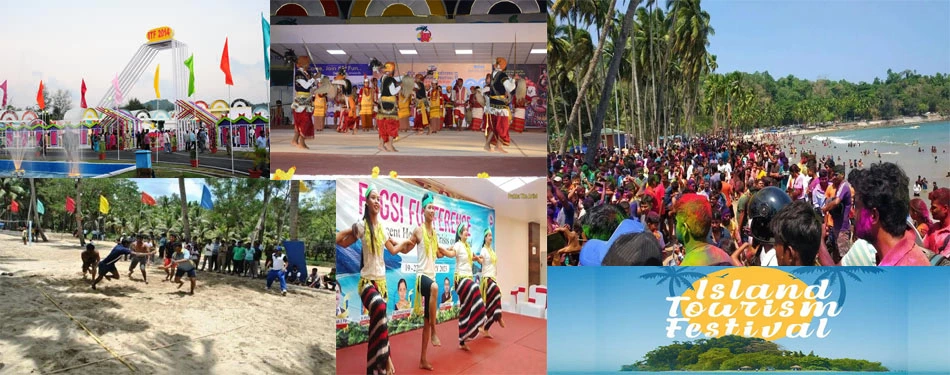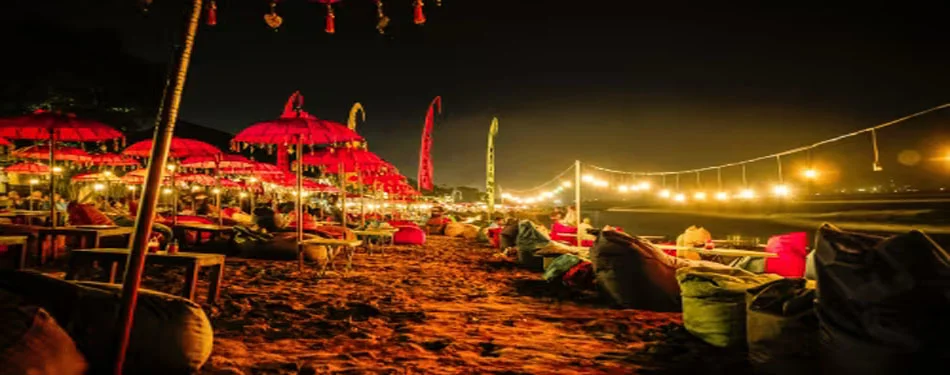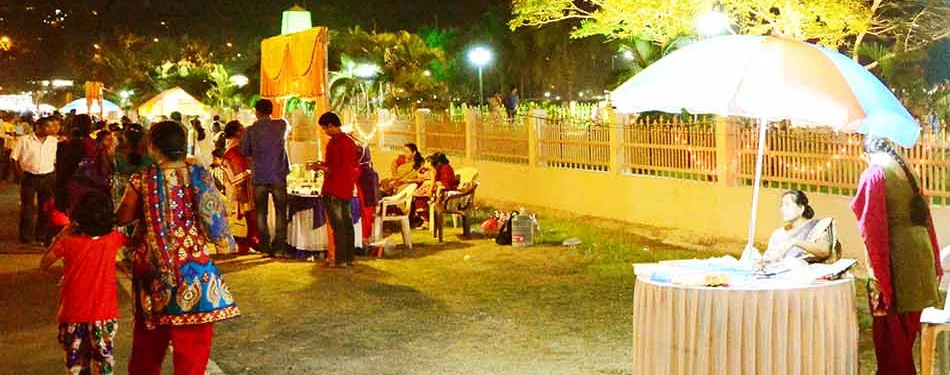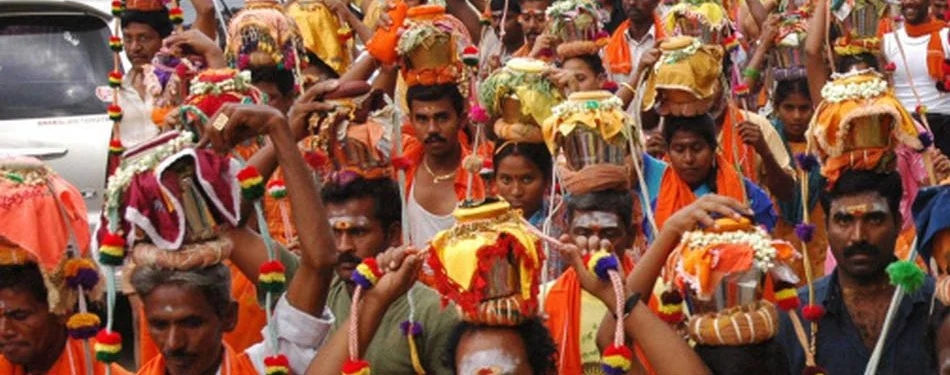Dive into the Vibrant Celebrations: Festivals of Andaman and Nicobar Islands

The Andaman and Nicobar Islands, located in the Bay of Bengal, captivate not only with
their stunning landscapes and diverse ecosystems but also with their rich and varied
cultural celebrations. The festivals of Andaman and Nicobar Islands show the islands'
traditions, culture, and communal harmony, giving deep insights into the lives and
beliefs of the local population. Characterized by lively music, traditional dances,
culinary delights, and a unifying spirit, these festivities offer an enjoyable
experience for all who visit. In this blog, we discuss the main festivals of Andaman.
Island Tourism Festival: A Journey to the Heart of Andaman
Among the main festivals of Andaman stands the Island Tourism Festival, a significant
event celebrated annually in Port Blair, the islands’ capital. Spread for approximately
two weeks, this festival shows the islands' cultural richness and dynamic way of life.
As part of the broader spectrum of fairs and festivals in Andaman, it draws performers
from across India, showcasing a diverse range of art and heritage. The event is packed
with exhibitions, artistic displays, cultural performances, and thrilling adventure
sports, displaying the culture of the islands. Attending the Island Tourism Festival is
a must-visit experience in these islands.
Beach Festival: A Celebration of Maritime Splendor

Another standout among the islands' festive occasions is the beach festival in Andaman,
usually held in April. This festivity is dedicated to the beauty of the ocean and the
shores, featuring a variety of sporting and leisure activities like beach volleyball,
sand art contests, and coconut tree climbing events. This period sees both island
residents and visitors to the beaches, and enjoying the joyous festival environment.
However, the beach festival in Andaman is more than entertainment; it is filled with
cultural acts and musical performances, enhancing the overall vibrant atmosphere.
The Monsoon Festival

The Monsoon Festival is a unique celebration reflecting the islands' tropical climate. It
is one of the most enchanting fairs and festivals in Andaman, celebrating the arrival of
the monsoon. The festival includes traditional dances, music, and a variety of local
food stalls offering delicious island cuisine. It's an excellent opportunity for
visitors to experience the local culture and participate in the joyous celebrations that
bring the community together.
Traditional Tribal Festivals: A Journey into the Past
The indigenous tribes of the Andaman and Nicobar Islands, such as the Great Andamanese,
Onges, Jarawas, and Sentinalese, have their unique festivals, which are crucial to the
cultural tapestry of the islands. While many tribal celebrations are private, certain
events are open to non-tribal people. These festivals are deeply rooted in the tribes'
connection with nature and include rituals, dances, and music. Experiencing these
traditional tribal festivals offers a rare glimpse into the ancient culture and
traditions that have been preserved over centuries.
Durga Puja and Diwali Celebrations
Alongside the distinct local festivities, the Andaman and Nicobar Islands also celebrate
Indian occasions such as Durga Puja and Diwali. Durga Puja is observed with immense
enthusiasm, characterized by the creation of intricate pandals and the organization of
various cultural events across the islands. Similarly, Diwali, known as the festival of
lights, holds considerable importance, with residential and communal areas splendidly
lit up, mirroring the festive mood of the celebration. These festivals unite the
islands' diverse residents, building a lively environment of unity and festivity.
Christmas and New Year: A Festive Fusion
Christmas and New Year are celebrated with great pomp and show in the Andaman and Nicobar
Islands. The islands, with their serene beaches and exotic landscapes, become a festive
paradise during this time. Churches are beautifully decorated, and midnight masses are
attended by large crowds. The festive mood extends to the New Year celebrations, with
beach parties, fireworks, and events organized by resorts and local communities. These
festivities reflect the island's colonial past and the modern, cosmopolitan ethos,
blending traditions to create a unique festive atmosphere.
The Panguni Uthiram Festival: Connecting with the Divine

The Panguni Uthiram is another significant festival among the Tamil community in the
Andaman and Nicobar Islands. This Hindu festival is dedicated to Lord Murugan and is
celebrated with processions, rituals, and cultural performances. Devotees carry 'Kavadi'
– a physical burden through which devotees implore for help from Murugan – and pierce
their bodies as an act of devotion. Although this festival may seem intense, it is a
cultural experience showcasing devotion, music, and dance.
Environment and Wildlife Festivals: A Tribute to Nature
The Andaman and Nicobar Islands are also known for their efforts in environmental
conservation and awareness. Festivals such as World Environment Day and World Oceans Day
are celebrated with enthusiasm, featuring activities such as beach clean-ups, coral reef
monitoring, and awareness programs about marine biodiversity. These events highlight the
importance of nature and wildlife in the islands and encourage sustainable tourism and
living practices among locals and visitors alike.
Conclusion: A Melting Pot of Joy and Tradition
Visitors to the Andaman and Nicobar Islands during these festive times are welcomed into
a world of color, music, and dance, where every day is a celebration of life and nature.
Whether it's through the spirited beach festival in Andaman, the tribal ceremonies, or
the vibrant New Year's parties, the islands offer an unforgettable experience.
The festivals of Andaman and Nicobar Islands offer a kaleidoscope of cultures,
traditions, and joyful celebrations. Each festival, whether it is the main festival of
Andaman like the Island Tourism Festival or the more localized tribal and community
festivities, tells a story of unity, diversity, and the intrinsic connection between
humans and nature.



